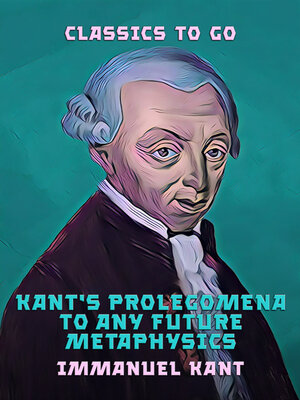
Sign up to save your library
With an OverDrive account, you can save your favorite libraries for at-a-glance information about availability. Find out more about OverDrive accounts.
Find this title in Libby, the library reading app by OverDrive.



Search for a digital library with this title
Title found at these libraries:
| Loading... |
Prompted by Hume's skepticism, Kant addresses the question of whether and how metaphysics is possible. Metaphysicians have yet to agree on one definite proposition, or even to establish a basis for agreement upon judgments. Kant distinguishes between a priori and a posteriori cognitions and between analytic and synthetic judgments. Knowledge we gain from experience is a posteriori, and what we can know independent of experience is a priori. A synthetic judgment is one whose predicate contains information not contained in the subject, and an analytic judgment is one whose predicate is a mere analysis of the subject. Kant claims that mathematics, natural science, and metaphysics all lay claim to synthetic a priori propositions—propositions that are necessarily but not trivially true, and can be known prior to experience. Since mathematics and pure natural science are well-established fields, he proposes to examine how their synthetic truths are possible a priori in the hope that this examination will shed light on the possibility of metaphysics as a science.






